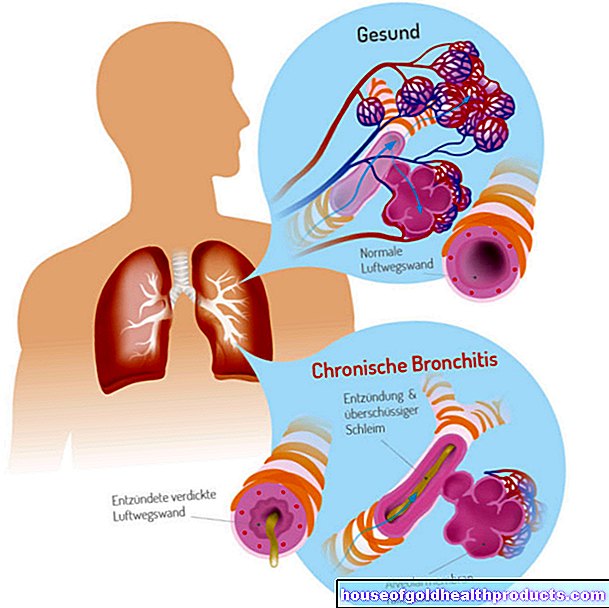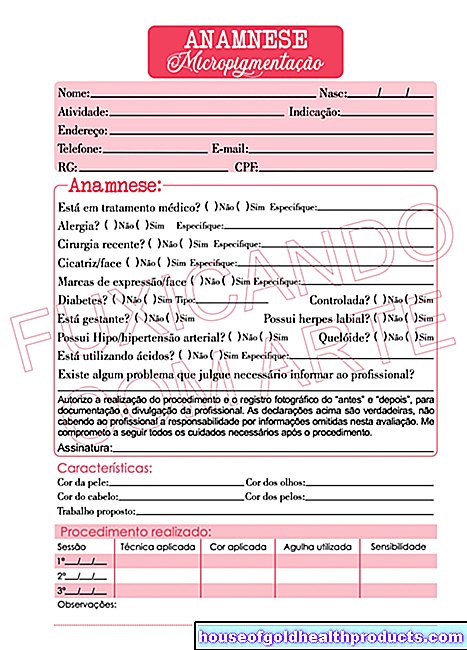Covid-19: Does the blood group favor severe courses?
Christiane Fux studied journalism and psychology in Hamburg. The experienced medical editor has been writing magazine articles, news and factual texts on all conceivable health topics since 2001. In addition to her work for, Christiane Fux is also active in prose. Her first crime novel was published in 2012, and she also writes, designs and publishes her own crime plays.
More posts by Christiane Fux All content is checked by medical journalists.In many infected people, a Sars-CoV-2 infection is mild or even symptom-free, but some become seriously ill or die. Risk factors such as age, previous illnesses, obesity and smoking play a role. But younger, otherwise healthy people can also become seriously ill.
Risk factor blood group A
It is now clear that blood type could also play a key role in the course of the disease. Patients with blood group A may have an up to 50 percent higher risk of a severe course. Apparently people with blood group zero carry the lowest risk.
This is what a research team led by Andre Franke from the University of Kiel and Tom Karlsen from the University of Oslo reported in a preliminary publication of their study.
Conspicuous gene variants in the genome of seriously ill patients
The researchers had examined the genome of around 1,600 people with severe Covid-19 disease from Spain and Italy who needed oxygen therapy or even had to be ventilated. They compared this with the DNA of more than 2000 healthy people. In doing so, they came across two short gene segments, so-called snippets, the variants of which increase the risk of severe courses.
One of them was close to the genetic blueprint for ACE2 - the surface molecule that Sars CoV-2 uses as a gateway into the cells. The second, however, concerned the region that determines a person's blood group.
Chinese research confirms link
Previous studies already provided indications that the blood group could play a role in the course of the disease: as early as March, after examining 2000 patients, Chinese scientists came to the conclusion that people with blood group A are more likely to become seriously ill.
In addition, the rhesus factor could also be important: A US study also confirms a higher risk for people with blood group A - but especially if they were also rhesus-positive.
How the blood group could influence the course of Covid-19 is still unclear. But there are hypotheses.
Inflammatory reactions are fueled
On the one hand, the critical gene variant could fuel inflammatory reactions. A massive immune response, a so-called cytokine storm, is the cause of many serious or fatal courses of COVID-19.
Another possible factor is blood clotting. According to the scientists, the genetic snippet that determines the blood group is linked to factors that promote coagulation. With Sars-CoV-2, blood coagulation is increased, so that blood clots form more often. If these migrate to the lungs or the brain, potentially fatal pulmonary embolisms or strokes are the result.
The influence of the tendency to clot
People with blood group zero naturally have a less strong tendency to clot. This could contribute to the fact that Covid-19 is less severe for them.
For the therapy, it might be useful to take the blood group into account. In this way, sick people with blood group A could be monitored more closely and possibly treated earlier in the future with drugs such as Remdesivir, which is also about to be approved in Germany.
This is how common the blood groups are
In Germany, blood group A, associated with Sars-CoV-2 infections, is most frequently represented with 43 percent, closely followed by blood group 0 with 41 percent, whose owners seem to be more likely to be protected from severe courses. Only 11 percent of people have blood group B, blood group AB only five percent.
Tags: gpp pregnancy birth therapies






















.jpg)






